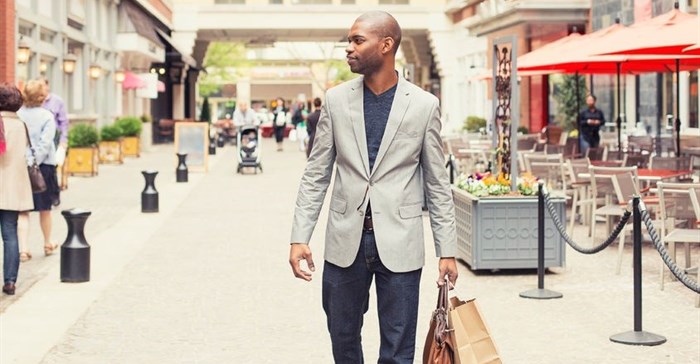
Subscribe & Follow
Jobs
- Key Account Manager Johannesburg
- Senior Brand Designer Cape Town
- Ad Agency Client Service Administrator Cape Town
- Internal Sales Consultant / Design and Display Industry Johannesburg
- Branch Manager/New Business Developer - Paper Bags and Food Packaging Cape Town
- Sales Representative Pretoria
- Print Sales Representative Nelspruit
Winning with consumers: SA brands applying design thinking
Yes, I was at the ‘university’ of brand building and my career had just started. As the years went by and I job hopped, like most young marketers tend to do, in search of job satisfaction and a better pay day, it soon became evident that we were all missing it at the least and killing it at the most.
Sitting at 16-seater boardroom tables, I have heard it all; emerging black middle-class, black diamonds, the black consumer, BOP consumer. The terms are endless, and there is always that scene when the lead agency rolls in a Lebo or Thabo or some black ECD who has coined a phrase that will finally get ‘the black consumer’ to buy more washing powder, open a bank account or buy more airtime.
There is high-fiving in the room, and visions of an overseas holiday with that bonus from the client’s side, as the ‘black consumer’ that has been evading the brand has finally been conquered. ‘Surely, I will get promoted to marketing manager or director with this campaign or product launch,’ one believes. Then BOOM!!! The product fails, then the walk of shame from the boardroom, after the board finally pulls it. After millions poured into R&D, internal launches, ATL & BTL comms and PR, some products and campaigns just don’t make it.
But why, how could this happen to us!? I thought we understood the ‘black consumer’. Feeling betrayed, the end result is the business goes out to pitch and the cycle starts again.

Why do some brands like Capitec, the Economic Freedom Fighters (this is not an endorsement of their policies nor support) and MAQ come out tops with a fraction of the budget that, the big four banks, two big political parties or a company with a stable of brands, have? Why did Sunsilk not crack the ethnic hair market or after more than two attempts Vodacom finally had to pull M-Pesa, which has been such a huge success in Kenya for Safaricom? Did the opportunities seize to exist?
I think each case of brand or product failure in South Africa has its unique set of circumstances, from poor economic conditions to the ECD’s ego. But on a closer look, there are a few common denominators which I have identified having worked on both sides of the brand story, as a client and MD of an agency.
I will explain the shortfalls by looking at what Capitec, the EFF and MAQ have done right, this in the spirit of being positive and encouraging marketers/admen in South Africa to stick to the basics. We still are the hub of creativity on the continent and I believe we have a lot to contribute not only to the continent but the world.
These three brands did not look at the ‘black consumer’ (whatever that is) as one group that just needs one magic formula and our brand growth problem will be solved. These brands identified the opportunity, developed the innovation and stuck to the messaging.
With Capitec, the opportunity was not about the unbanked, it was about glass between the customer and the teller. It was about the well-dressed men and women being walked into the corner offices with a smile. It was about the customer who was made to feel not welcomed by structure and process. Capitec simplified banking for the majority of South Africans, of which most happen to be black and lower LSM. Capitec did not go in with an atom bomb approach to the opportunity, they took the customer on a journey. This approach has paid off, with assets of R63bn, not bad for 15 year old. Simplicity is the ultimate sophistication!
I open this paragraph with this statement; this is not an endorsement of the EFF as a political party, but a marketer’s observation of the EFF brand. When the founders of the EFF were given their marching orders out of a building in Joburg, they still had with them huge insight; 52% of South African youth are unemployed. Unless jobs were going to fall out of the sky in the next two years, this problem was going to stay with us for a long time.
These youth feel sidelined and let down by the government of the day. Yes, the debates are a lot about how to resolve this serious problem that faces us as a nation. However these founders, whether you agree with them or not and remember this is about branding, founded the ‘Economic Freedom Fighters’ (innovation). The perfect vehicle to represent these disenfranchised youth. In a short period, they made it to parliament and we are yet to see how they will perform in this year’s local government elections. They seem to be the only brand a majority of our youth, who happen to be black and lower LSM, can relate to.
If you thought the powder war was started by the entry of Ariel into South Africa, you are wrong. About 10 years ago, with the fraction of the budget, out of one factory in Johannesburg, MAQ decided to take on Unilever.
Like most brands that challenged Unilever with its basket offering of Omo, Sunlight, Surf and Skip, everyone in the industry wrote them off. “We give them a year, two at the most and they would have packed their bags and headed into the sunset”. 10 years later even after P&G’s launch of Ariel, MAQ is still in the fight with product extensions including auto. MAQ stuck to its brand message; stain removing without breaking the bank. They further challenged us, “Go Ahead…Try It”, and we did! Who can forget Mac-Mac-Mac-Mac. They understood their target market, lower LSM consumer across all races, hence they launched in Shoprite and independent wholesalers first.
To close, as I sit on other 16-seater boardroom tables in 2016, I #smh as marketers and admen are trying to ‘crack’ the African consumer or stokvels. We need to learn from these three brands who did not have a homogeneous approach but stuck to a tested formula – OPPORTUNITY+INNOVATION+MESSAGING.
About Bongani Chinkanda
Bongani Chinkanda is founder and MD of Dzuwa South; An Ideas Agency that is cocreating with brands to touch lives through the power of human truths. www.dzuwasa.co.za


















